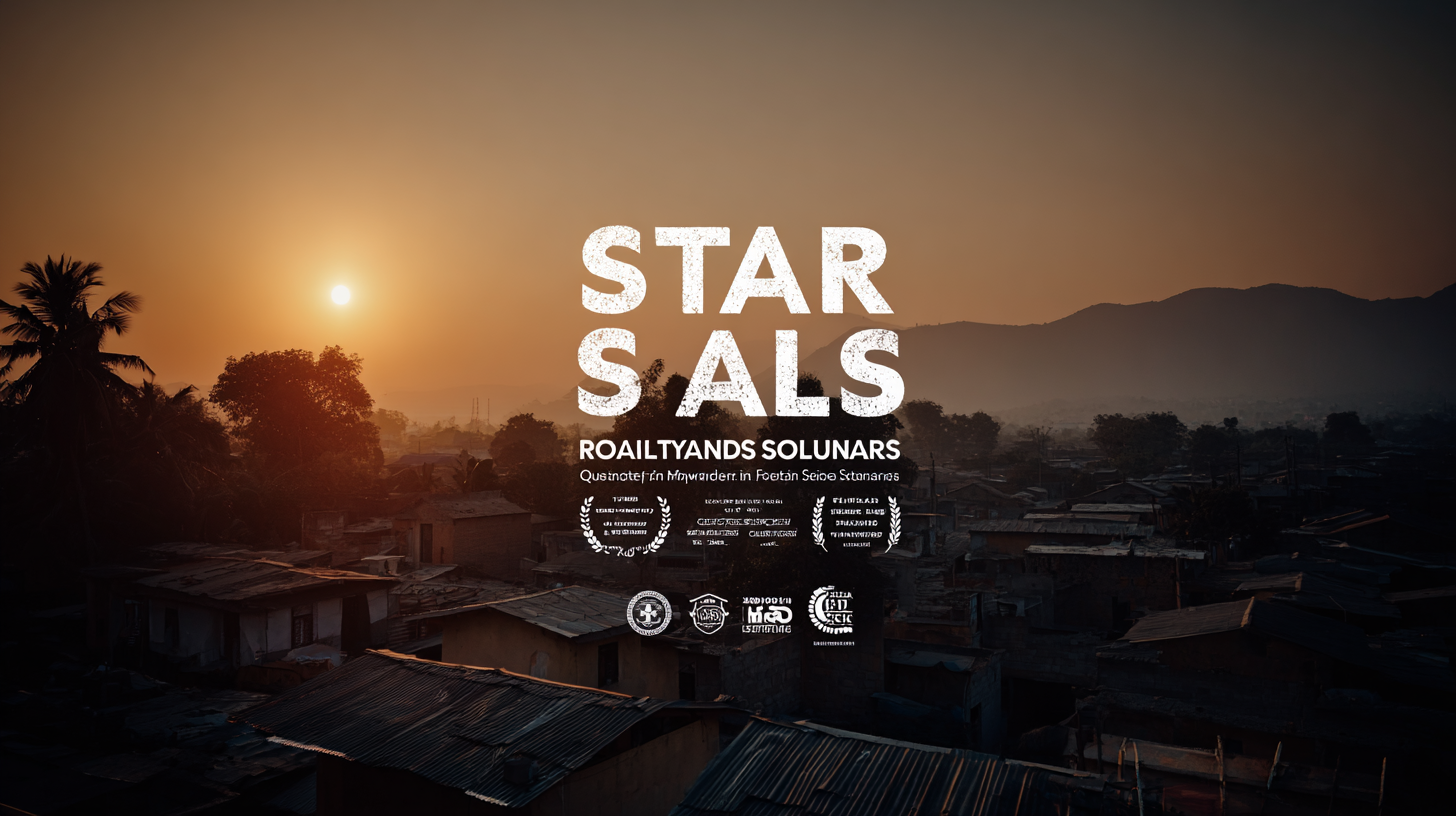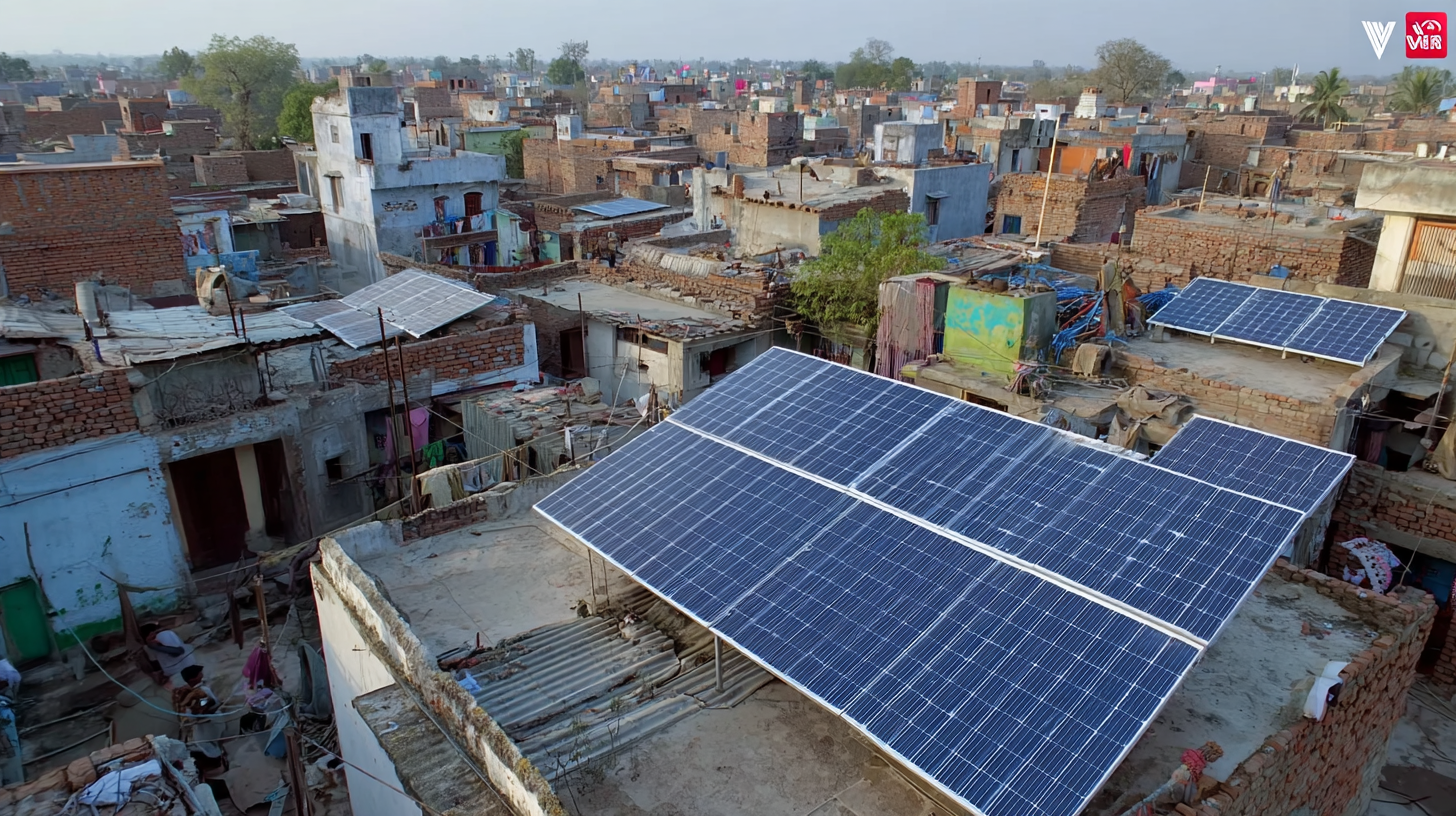As communities increasingly seek sustainable energy solutions, the importance of understanding quality standards for rooftop solar for societies cannot be overstated. According to a recent report by the International Energy Agency (IEA), global solar photovoltaic (PV) capacity reached approximately 1,000 gigawatts in 2020, with a significant portion attributed to residential and community installations. This trend underscores the necessity for high-quality roofing solar products that not only maximize energy output but also enhance the longevity and safety of installations. Compliance with rigorous standards can lead to a reduction in energy costs by up to 75%, as highlighted by the National Renewable Energy Laboratory (NREL). In this blog, we will explore the detailed technical parameters that define the best rooftop solar solutions for communities, ensuring that both current and aspiring users can make informed decisions about their energy future.

When considering rooftop solar solutions for communities, it is crucial to focus on quality standards that not only enhance energy efficiency but also promote sustainability. As residential electrification gains importance in reducing greenhouse gas emissions, communities must evaluate the systems they implement. High-quality solar installations can significantly contribute to meeting climate targets while ensuring long-term performance and reliability.
Key factors to consider in the quality standards of rooftop solar include the durability of the materials used, the warranty offered by manufacturers, and the overall installation practices. High-quality solar panels should withstand various weather conditions and have a proven track record in different environments. Additionally, engaging experienced installers familiar with best practices can help communities ensure that their solar solutions are both efficient and cost-effective. By prioritizing these considerations, communities can maximize the benefits of rooftop solar installations, fostering a sustainable and resilient energy future.
The global shift towards renewable energy solutions is increasingly highlighted by China's significant role in manufacturing high-quality solar technologies. As communities strive to adopt rooftop solar solutions, understanding the standards that define these products becomes essential. Chinese manufacturers are at the forefront, innovating and producing advanced solar panels that not only meet but often exceed international quality benchmarks. Their commitment to sustainability and efficiency has propelled them to become key players in manufacturing, essential for communities aiming for clean energy alternatives.
Tips for Selecting Solar Solutions:
When evaluating solar products, look for certifications that indicate compliance with international quality standards. This ensures that the solar panels installed are reliable and efficient. Additionally, consider the warranty and support offered by the manufacturer, as a robust support system can greatly enhance your solar experience.
Moreover, as communities integrate solar technology, it's important to stay informed about the evolving landscape of energy resources. With advancements in technologies such as floating solar photovoltaic systems, there are more innovative options than ever for harnessing solar energy effectively. Engage with experts and local initiatives to explore the best solar solutions tailored to your community's unique needs.
Innovative technologies are revolutionizing the rooftop solar industry, making high-quality solar systems more accessible to communities around the world. Recent advancements in photovoltaic (PV) technology highlight a significant shift towards enhanced efficiency and durability in solar panels. As manufacturers innovate their designs and expand their capabilities, the solar industry is witnessing the emergence of next-generation solar modules that promise to deliver superior performance while reducing installation complexities.
Moreover, the market for solar panel mounting structures is evolving, with innovative solutions emerging to support the growing demand for renewable energy. These advancements not only optimize energy harnessing but also facilitate the adoption of solar technologies in various settings, including residential rooftops. The integration of cutting-edge technologies, such as smart monitoring systems and improved energy storage solutions, further enhances the reliability and adaptability of rooftop solar systems, ensuring they meet the diverse needs of communities.
With a focus on quality standards and technological innovation, the future of rooftop solar solutions looks promising. As more stakeholders commit to sustainable energy solutions, the path is paved for communities worldwide to harness solar power effectively, driving both environmental benefits and energy independence.

As communities increasingly seek sustainable energy solutions, tailoring solar installations to meet local needs becomes essential. Recent studies reveal that community-driven energy models are gaining traction, with 90 energy communities showcasing various business model designs. These models highlight the importance of community involvement in energy planning, which not only enhances local impact but also fosters a sense of ownership among residents. Place-based considerations ensure that solar solutions address specific energy demands and socio-economic factors unique to the community.
In rural areas, renewable energy initiatives are particularly vital. A comprehensive analysis of 86 articles on rural energy communities identifies technological, economic, and social drivers necessary for promoting growth and sustainability. Challenges such as limited infrastructure and funding can hinder progress, yet partnerships and innovative financing models offer promising pathways. By focusing on community needs and leveraging local councils' planning powers, solar solutions can significantly improve access to renewable energy, ultimately enhancing the quality of life in neighborhoods. Tailored approaches can lead to better public health outcomes, as communities can benefit from clean energy while reducing reliance on fossil fuels.
This chart illustrates the assessment of various quality standards for rooftop solar solutions, focusing on community needs and the local impact of solar energy implementation.
In today’s quest for sustainable energy solutions, environmental accountability in solar manufacturing has become a fundamental concern. The solar industry is uniquely positioned to lead the way in promoting eco-friendly practices, from the sourcing of raw materials to the end-of-life recycling of solar panels. Companies that prioritize sustainability not only reduce their carbon footprint but also enhance the overall credibility of their products. Transparent supply chains and responsible sourcing ensure that the materials used in solar panels do not contribute to environmental degradation or exploitative labor practices, reinforcing a commitment to social responsibility.

Moreover, manufacturers are increasingly adopting innovative techniques that minimize waste and energy consumption during the production process. Practices such as closed-loop recycling and the use of renewable energy sources in manufacturing facilities reflect a dedication to reducing impacts on natural ecosystems. By integrating sustainability into their business models, solar manufacturers not only meet regulatory standards but also respond to consumer demand for environmentally-friendly products. As communities increasingly turn to rooftop solar solutions, the importance of choosing providers that adhere to these high-quality, sustainable standards cannot be overstated. Such commitment not only benefits the environment but also fosters trust and engagement within the community.
As electricity costs continue rising, many small households in Maharashtra seek sustainabl...Read More
Uttar Pradesh is making significant progress in adopting renewable energy, particularly so...Read More
With the Indian government actively promoting renewable energy through subsidies and polic...Read More
Tired of watching your electricity bills climb month after month and strain your pockets? ...Read More
Switching to solar energy in Gujarat has never been more profitable! With plenty of sunlig...Read More
If you live in Madhya Pradesh and want to save money on power while living a greener lifes...Read More
If you’re a resident of Bangalore looking to save on your skyrocketing electricity b...Read More
If you live in Karnataka and have been looking for an environmentally friendly, cost-effec...Read More
Delhi is a city that thrives on its vibrant energy, and what better way to complement that...Read More
As electricity costs continue rising, many small households in Maharashtra seek ...Read More
Uttar Pradesh is making significant progress in adopting renewable energy, parti...Read More
With the Indian government actively promoting renewable energy through subsidies...Read More